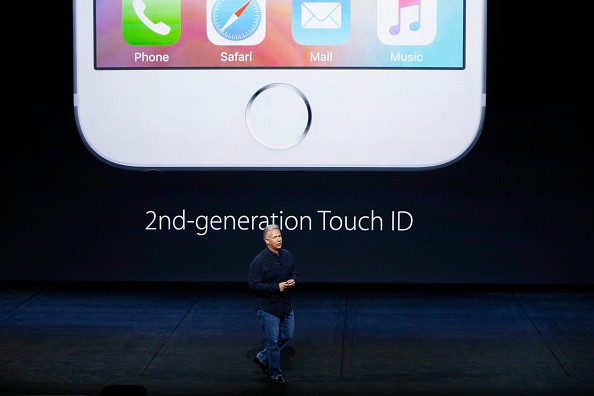The United States government authorities recently obtained a search warrant requesting the fingerprint of a woman from Los Angeles to access an iPhone, reportedly owned by her boyfriend. The U.S. government has been battling with Apple Inc. to unlock an iPhone.
Recently, it asked the tech firm to unlock the smartphone of the suspect in the San Bernardino shooting. It seems federal authorities are undertaking a different route to access devices.
The FBI wanted the fingerprint of Paytsar Bkhchadzhyan, 29, a woman who did not contest to identity theft felony count and was sentenced on Feb. 25. Forty-five minutes following her custody, a judge in a federal courtroom 17 miles far, U.S. Magistrate Judge Alicia Rosenberg, signed a warrant to have her fingerprint on an Apple phone.
Bkhchadzhyan's fingerprint was taken by 1 p.m., Los Angeles Times reported. The phone to be unlocked was seized from a house in Glendale, which is linked to a case involving Sevak Mesrobian, an alleged Armenian Power gang member and Bkhchadzhyan's boyfriend.
Mesrobian was said to have "40" as his moniker. He has been detained at North Kern State Prison since Feb. 12.
The phone has Apple's fingerprint ID system for unlocking the device and prosecutors wanted to access its data. Though it is unusual for prosecutors to demand a person's fingerprint to open a smartphone, experts expect this could happen since opening a digitally secured device becomes a big part of law enforcement work.
Fingerprints are categorized by the court as "real or physical evidence" from the body. While providing a passcode could be a form of a testimonial or self-incrimination, being compelled to provide physiological or biometric, such as a blood or fingerprint, is not.
Law enforcement usually obtain search warrants to monitor telecommunications, examine a property, or even check an inmate's mouth for DNA. Unlike knowledge or communications which cannot be demanded without violating the Fifth Amendment, fingerprint is a type of evidence that does not require a warrant, just like handwriting samples.
When Apple introduced the Touch ID, law experts warned the public of relying so much on the fingerprint system. Though it provides convenience, it could be a subject to a weak protection against self-incrimination.
"This is why I tell my criminal procedure students that they have more protections if they use a passcode rather than fingerprint to guard entry to their phones," University of Washington law professor, Mary Fan told Ars Technica via e-mail.
Though she is not doing any criminal act, Fan refused to use her fingerprint on her phone. She said, "I still decline to use my fingerprint out of an abundance of caution!"
iPhones are equipped with a fingerprint scanner since 2013 which, when enabled, has the fingerprint as the only way to unlock the handset if it has been locked within 48 hours. If locked for more than 48 hours, or been rebooted, a passcode is required.
The following video reports on the government's mandate to Apple to unlock a suspect's iPhone.



